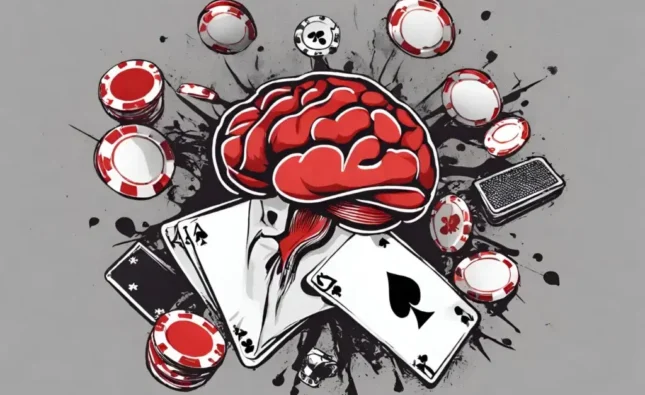High-stakes poker is a thrilling arena where the most experienced players test their skills, and the stakes can reach astronomical levels. Unlike the lower stakes games where casual players often make up the majority of the field, high-stakes poker is filled with sharp, professional players who know how to apply advanced strategies and maximize their edge.
Whether you’re looking to break into the high-stakes scene or enhance your existing game, winning at this level requires more than just the basics of poker. It’s about honing your strategy, understanding the nuances of bankroll management, maintaining the right mental approach, and knowing when to take calculated risks. This guide will walk you through essential strategies and tips to thrive in high-stakes poker games.
1. Master Your Bankroll Management
One of the most critical aspects of playing high-stakes poker is having the right bankroll management. With the stakes higher, the risks are amplified, and you need to ensure you have the financial capacity to handle swings without risking your entire bankroll.
Why Bankroll Management Matters
In high-stakes games, you’re dealing with large pots and the possibility of significant losses. It’s not uncommon to encounter downswings that can be emotionally and financially challenging. Without proper bankroll management, players often go broke or burn through their funds in just a few unlucky sessions. A solid bankroll management plan will help you survive the variance inherent in poker, especially at higher levels.
Key Tips for Bankroll Management
- Know Your Limits: Never sit down at a table if you don’t have enough money to sustain multiple buy-ins for that game. It’s a good idea to have at least 100 buy-ins for the stakes you are playing.
- Adjust During Downswings: If you’re on a losing streak, drop down in stakes to protect your bankroll and avoid risking more money than you can afford to lose.
- Avoid Chasing Losses: One of the biggest mistakes in high-stakes poker is playing recklessly to recover losses. Stick to your game plan and bankroll guidelines, and don’t let emotions influence your decisions.
2. Forget About the Money
When playing high-stakes poker, it’s easy to become distracted by the large sums of money in play. However, the best players are able to compartmentalize the money and focus solely on the strategic aspect of the game. This means that you should treat the chips in front of you as just that—chips. They represent blind amounts, not dollar figures.
Why It’s Important to Forget About the Money
Focusing on the monetary value of each decision can lead to fear-based play, which often results in mistakes. At the higher stakes, you’ll need to make decisions based on expected value (EV) rather than the fear of losing large sums. The moment you start thinking about the money involved, your judgment can become clouded, leading you to fold valuable hands or overplay weak ones.
How to Maintain Focus
- Think in Terms of Big Blinds: Always consider your bets and decisions in terms of big blinds (BB) rather than dollars. This helps you maintain a strategic mindset, unaffected by the monetary value of the chips.
- Focus on +EV Decisions: The goal at all times should be to make the most profitable decision in any given spot. If you focus on making +EV plays, you’ll have much better results than if you worry about how much you stand to lose or win in dollar terms.
3. Spot the Weak Players
In high-stakes games, most players are skilled, but there will always be a few who are out of their depth. These “fish” or recreational players can be the key to making substantial profits, and identifying them quickly is vital to your success.
Identifying Weak Players
While there are fewer recreational players in high-stakes games compared to lower stakes, they still exist. These players tend to be less knowledgeable about optimal poker strategy and often make mistakes that can be exploited. Your job is to identify these players quickly and capitalize on their mistakes.
How to Spot the Fish
- Look for Players Who Play Too Many Hands: Weak players often play too many hands, regardless of position. They might limp into pots with a wide range of hands or make large bets without a strong understanding of hand strength.
- Identify Poor Post-Flop Play: Fish often struggle with post-flop decisions. If a player calls too many raises or makes large, uncalculated bluffs, they might be an easy target for exploitation.
- Watch for Emotional Play: Recreational players often let their emotions get the better of them. If a player is visibly upset or frustrated, they may make rash decisions that can be taken advantage of.
4. Focus on Live Poker
While online high-stakes poker games have their merits, the most profitable high-stakes games typically occur in live poker settings. Many of the most successful players in the world play live, as the environment presents more opportunities for exploitation than online games.
Why Live Poker is Ideal for High Stakes
Live poker games often feature more loose play due to the social and recreational nature of many players. The presence of large amounts of cash on the table can lead to irrational decisions and emotional play, which you can use to your advantage.
Adjusting to Live Poker
- Learn to Read Physical Tells: In live poker, physical tells can provide you with valuable insights into your opponents’ hand strength and emotional state. Practice observing your opponents’ body language, bet sizing, and facial expressions.
- Get Comfortable with Staring Down Opponents: One of the challenges of live poker is dealing with the intense scrutiny from other players at the table. Develop the ability to maintain a strong and calm demeanor while making your moves.
5. Practice Makes Perfect
The best way to improve at high-stakes poker is through experience. While studying the game is essential, there’s no substitute for playing hands-on and refining your skills in real-world scenarios.
Building Your Live Poker Skills
Start by playing at lower-stakes live tables and gradually work your way up. The more time you spend at the poker table, the more familiar you’ll become with the dynamics of live play, including physical tells, stack sizes, and table talk. Even at lower stakes, you’ll gain experience with betting patterns, hand reading, and managing large pots—all crucial skills for success at higher levels.
Learning from Mistakes
Don’t be discouraged if you make mistakes in your early high-stakes sessions. Every player has to learn from their losses and mistakes, and high-stakes poker is no exception. The more hands you play, the more comfortable you will become with the complexities of the game.
6. Study and Prepare Off the Table
To succeed at high-stakes poker, you need to put in a significant amount of study outside the casino or poker room. The best high-stakes players continually improve their game by analyzing hands, reviewing strategy, and learning new concepts.
What to Study
- GTO (Game Theory Optimal) Strategy: GTO is a balanced, unexploitable strategy that should form the foundation of your play. Study solvers like PioSolver and GTO+ to understand optimal betting frequencies, ranges, and strategies.
- Opponent Exploitation: Learn how to identify flaws in your opponents’ strategies and develop counter-strategies to exploit those weaknesses.
- Mental Game: Work on your psychological resilience to cope with the pressures of high-stakes play. Practice mindfulness, focus, and emotional control to stay calm during critical moments.
Dedication to Improvement
If you want to compete at high stakes, you have to be prepared to study tirelessly. Watch training videos, read poker books, and work through poker analysis to ensure that your skills are up to par with the best in the world.
7. Balance Your Game
At lower stakes, players can get away with being unbalanced in their play, such as only raising with premium hands or bluffing too frequently. However, at high stakes, your opponents will quickly pick up on these tendencies and exploit them. Balancing your game is crucial to maintaining an edge.
How to Achieve Balance
- Diversify Your Range: Don’t just play strong hands. Mix in bluffs and weaker hands to keep your opponents guessing.
- Vary Your Betting Sizes: If you always bet the same amount, your opponents will adjust accordingly. Vary your bet sizes based on the strength of your hand and the situation.
- Use GTO to Your Advantage: Balancing your strategy through GTO principles will make you more difficult to read and counter, even by the most skilled opponents.
8. Play in the Right Games
As the stakes rise, finding good games can become a challenge. While high-stakes poker tables often feature tough competition, your goal is to seek out games where you can still identify weaker players and take advantage of them.
How to Select the Right Game
- Look for Games with Recreational Players: These players, often called “whales,” are your primary source of profit. If a table is filled with strong players, it may be wise to leave and find a better opportunity.
- Private Games: Private games often have a mix of recreational players and tough regulars. These games can be more profitable if you know where to find them.
9. Bluff More Often
Bluffing is an essential part of high-stakes poker, and you need to increase your bluffing frequency to stay competitive. At high stakes, players are more likely to call with hands that they might have folded at lower stakes, so you must become more strategic with your bluffs.
When to Bluff
- In Heads-Up Pots: Bluffing is most effective when there are fewer players in the pot. Focus on your opponent’s tendencies
and bet when you believe they are weak.
- Use Semi-Bluffs: A semi-bluff is when you bet or raise with a draw, hoping to either win outright or complete your hand on a later street.
10. Plan Your Hands Ahead
The final key to high-stakes poker success is meticulous planning. Always have a strategy for how you will proceed in each hand, considering different scenarios and how your opponent might react.
How to Plan Effectively
- Think Through All Streets: Don’t just focus on your current bet. Consider how the hand will play out on the turn and river. Have a plan for each card that comes on the board.
- Consider Your Opponent’s Range: Anticipate what hands your opponent might hold, and adjust your strategy accordingly.
By following these strategies and continually improving your game, you can significantly increase your chances of success in high-stakes poker. The path to becoming a high-stakes pro is not easy, but with dedication and the right approach, you can reach the pinnacle of poker mastery.








